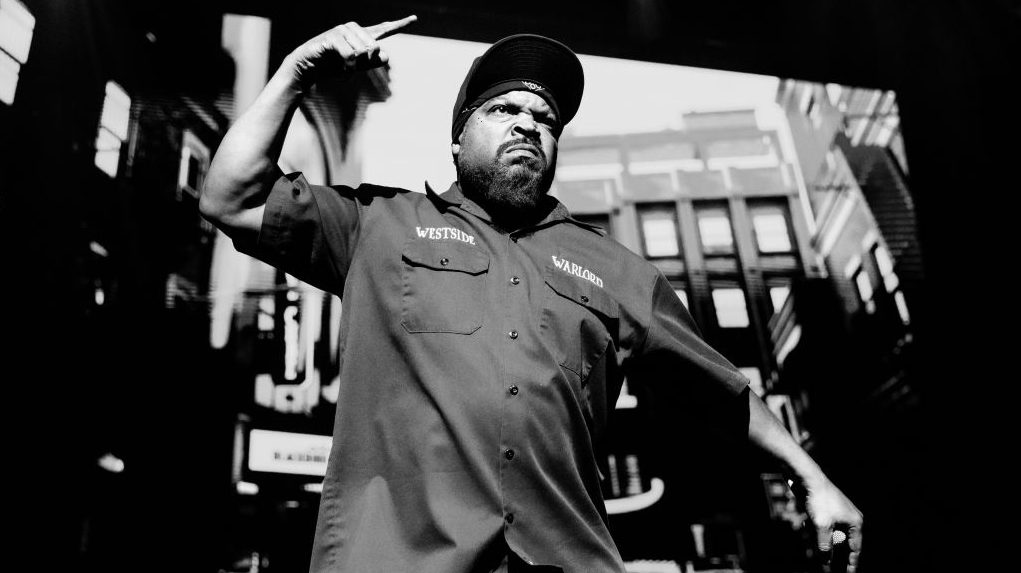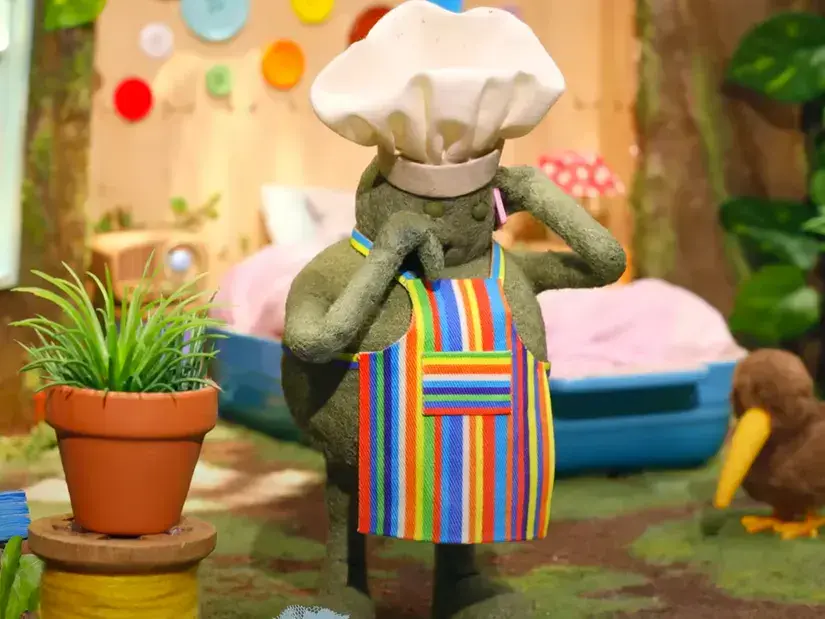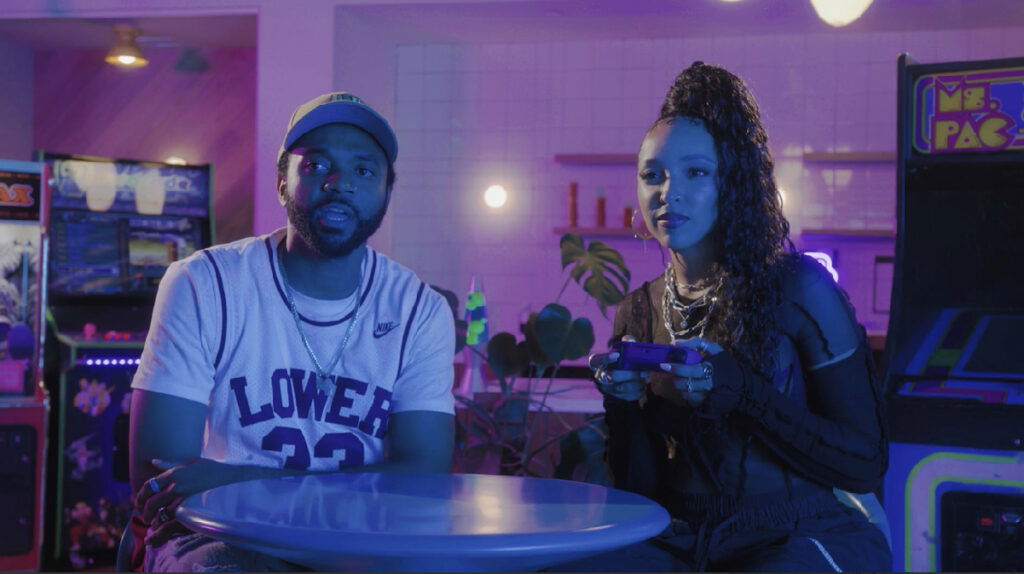Et tu, Ice Cube?
OPINION: When Ice Cube decided to record a feature for a white nationalist with attitude, it was not a good day. The post Et tu, Ice Cube? appeared first on TheGrio.

OPINION: When Ice Cube decided to record a feature for a white nationalist with attitude, it was not a good day.
Editor’s note: The following article is an op-ed, and the views expressed are the author’s own. Read more opinions on theGrio.
Would you invest in cocaine?
During my time as an economics professor, I used this question as an allegory for the basic laws of supply and demand. Using the illegal drug as an allegory for free-market economics gave students a better, less abstract grasp of the social, political and real-world complexities of a free-market economy. Invariably, one student would introduce morality into this theoretical exercise in economics. The student was almost always Black and would argue that investing in cocaine made them a drug dealer. To them, dealing drugs was immoral, no matter how profitable it seemed. They had seen it ravage neighborhoods and ruin lives. To them, this was not a game. Instead of explaining that this was just an extended allegory, I would pose another question:
“OK, what about baking soda?”
Anyone who grew up in a household that forbade talking during thunderstorms understands Black people’s semi-religious relationship with sodium bicarbonate. In Black households, baking soda is a toothpaste for the Crest-fallen and a deodorant for Tussyless grandmothers. I still keep it in my refrigerator, although I don’t quite know what it does.
In the economics of cocaine, sodium bicarbonate is the economic equivalent of a unicorn. It is a magic ingredient that somehow increased the supply and the demand. By adding baking soda to cocaine, dealers made more money from the same supply. According to government data, during the crack boom 1980s, the price of pure cocaine decreased but profits increased. Baking soda created new customers and made the old customers spend more. It was a capitalist’s dream and a community’s nightmare.
During the crack epidemic of the 1980s and ’90s, baking soda was more profitable than cocaine. In 1981, Arm & Hammer baking soda manufacturer Church & Dwight made $231 million in sales. By 1998 the company’s sales had nearly tripled to $684.4 million. If someone anticipated the crack explosion in 1980 and invested $1,000 in Dwight & Howard, they would have netted more than $500,000 by 2010. By comparison, that same investment in Apple stock over the same time period would have made about $80,000.
Investing in baking soda is neither illegal nor immoral. But if someone purposely invested money with the intention to profit from crack, are they a drug dealer? Is profiting from crack sales the same as selling crack?
This question is about Ice Cube.
The White NWA (Nationalists With Attitude)
I’ll never have dinner with the president
— No Vaseline,” Ice Cube
I’ll never have dinner with the president
I’ll never have dinner with the president
And when I see your ass again, I’ll be hesitant
Is white supremacy a good investment?
If white supremacy is a narcotic, then Tucker Carlson was the Fox News cartel’s No. 1 dope boy. From his corner, Carlson pushed the “social, economic, and political systems that collectively enable white people to maintain power over people of other races,” into drug-addicted white neighborhoods across America. His rant on how whites weren’t designed to live around immigrants was a pure uncut version of “the belief that the white race is inherently superior to other races and that white people should have control over people of other races.” Tucker Carlson is not a white supremacy dealer, he is a kingpin.
Last Wednesday, rapper, filmmaker and white supremacy investor Ice Cube appeared on “Tucker on Twitter,” Carlson’s new show on Elon Musk’s version of Fox News (No, I will not provide a link because I’m not a drug trafficker). The white replacement theorist began the interview by asking Mr. Cube the question everyone wanted to know. Why did Cube sit down with a white nationalist? Why would someone who cares about Black people go on a platform with the guy who makes crude jokes about Black people being murdered by police officers?
“Because I think it’s silly to not talk to people,” explained Ice Cube. “I’ve been shut out. Some platforms will not have me on. They don’t like that I’m an independent thinker; I’m not part of the herd.” I felt relieved when the platinum-selling, blockbuster-producing multimillionaire recounted how he has been excluded from the top levels of show business. As a fellow “outsider” who “speaks my mind,” I have also never been on “Oprah” or “The View.” Thanks to Ice Cube, I now understand it’s because I’m just an outsider who speaks my mind.
Doughboy said that his marginalization may have had something to do with people’s displeasure over his conversation with Donald Trump, a criticism that he called “idiotic.” Cube also points out that he was willing to speak to the Biden administration about his Contract with Black America — the policy agenda “to address the root causes of racism in our society and develop a roadmap for a comprehensive solution.” But Biden never met with Ice Cube because … you know … the outsider thing.
It was embarrassing.
Over the course of the two-part interview, Carlson made one of Amerikkka’s most outspoken rappers look like an attention whore selling himself for a little bit of that conservative crack rock. Carlson used Ice Cube’s (and many other Black voters’) legitimate frustration with the Democratic Party’s politics to cosign many of the most common conservative talking points, including the attack on straight men, the Democrats being just as bad as the Republicans and that Black people “make everything about race.”
Instead of challenging the anti-Black narrative that all the Black voters who align themselves with the Democratic Party are too dumb to know that they’ve been played, the rapper gave a confusing answer about dancing partners. He complained about the lack of investment in inner cities, racism in financial institutions and police brutality, but somehow forgot to point out that Tucker’s party and his platform are part of the reason why “nothing much has changed.” Cube inexplicably agreed with Carlson’s assertation that “we overplay the role of race in American life” and didn’t even try to dispute Tucker’s definition of racism as being “mad at people because of their skin color.”
Cube never adequately answered the initial question of why he sat down with a proven enemy of the people he purportedly wants to help, but over the course of the interview, the answer became clear:
Ice Cube is Tucker Carlson’s baking soda.
No Vaseline
I know the game, so I watch it unfold
— “Who’s the Mack?” Ice Cube
when I see the boy pinned to your earlobe.
He’s talking shit and you crack a smile
when he tells you that he can go buck wild
for a girl like you and make it feel good.
You know it’s drama, but it sounds real good.
I love Ice Cube
Anyone who grew up in an era where gangsta rap served as a form of protest music understands Black America’s affinity for Ice Cube. He expressed how an entire generation felt about the police. In my opinion, his movies depicted the diversity and governance structure of Black communities. I still have him ranked as the greatest storyteller in hip-hop history. His music was always political.
Cube’s appearance wasn’t all bad. In fact, there is one positive aspect to his sit-down with Amerikkka’s Most Wanted and Amerikkka’s most racist. Now we understand why Trump welcomed Cube with open arms, in contrast with groups that supposedly support Black people.
Ice Cube ain’t got the answers, Sway.
There’s absolutely nothing wrong with calling out the Democratic Party. The Democratic Party can be as frustrating as using a butter knife as a screwdriver and there are many others, including the most loyal Democratic Black voters, who share Ice Cube’s criticisms. All politics is imperfect. I’m sure there are white people who want Trump to be more racist. Black people aren’t hypnotized by the Democratic Party; for us, it is the best available tool that works for our political needs.
Maybe the Biden administration, Oprah Winfrey and “The View” didn’t reject Ice Cube. It is entirely possible that they share the same positions. However, Ice Cube’s beef isn’t about how the party treats Black people; he seems to be upset about how the Democratic Party treats Ice Cube. Tucker is proof that people who entertain Ice Cube don’t actually want to solve the problems plaguing Black America. Of all the people available to push these ideas forward, the most anti-Black public figure in America chose Ice Cube, perhaps the least qualified pro-Black public figure in America.
I’ve actually read Ice Cube’s Contract for Black America; it’s not bad. However, it also doesn’t contain a single idea that wasn’t in every Black policy agenda I’ve ever read. The financial policies are the same stuff that was proposed in the 1930s by the Black Brain Trust. The recommendations for media reform are almost identical to the suggestions of the National Black Political Agenda of 1972. You can find the same advice on transforming justice, education and housing systems in Tavis Smiley’s “The Covenant” but in greater detail. Depending on your view of reparations, Randall Robinson or William Darity have it covered. Black to the Future’s Black Agenda 2020 was more expansive.
But let’s say I’m wrong. Let’s say I’m just a stupid baking soda aficionado who doesn’t know what I’m talking about. Hypothetically, let’s imagine that you had the cure for four centuries of white supremacy, political disenfranchisement, economic inequality and plain old racism. Let’s say you wrote them down, and all you needed was someone with a platform and a position that could tell the world about this ingenious plan.
WHY WOULD YOU TELL TUCKER CARLSON?
Why would you give them to the head of a white supremacist cartel? Why would you go on a platform that was created with the single goal of blocking any progress you could theoretically achieve? Ice Cube isn’t spreading anti-Black racism but he’s helping the supplier make it stretch. He gave Tucker Carlson a new base of customers and offered Carlson’s old customers a more powerful version of the same drug. But why would someone who wanted to rebuild a community that was ravaged by one particular narcotic help build a new crackhouse for the kingpin of white supremacy?
That is not a rhetorical question. I actually know an expert.
Five years ago, on Jan. 3, 2018, a journalist received an invitation from the most-watched show on cable news — “Tucker Carlson Tonight.” It was an opportunity of a lifetime. The writer disagreed with almost everything Carlson said, and now he had the chance to explain to white people on their platform. But then the writer wondered: “Will a few minutes in front of anti-Black conservatives cure them of their addiction? Or, will this appearance be used to lure more people into his racist trap house? Ultimately, how does this help Black people?”
When the writer asked a friend, the friend’s only advice was to “check yourself before you wreck yourself.”
Here was the writer’s answer:

Michael Harriot is a writer, cultural critic and championship-level Spades player. His book, Black AF History: The Unwhitewashed Story of America, will be released in September.
TheGrio is FREE on your TV via Apple TV, Amazon Fire, Roku, and Android TV. Please download theGrio mobile apps today!
The post Et tu, Ice Cube? appeared first on TheGrio.












